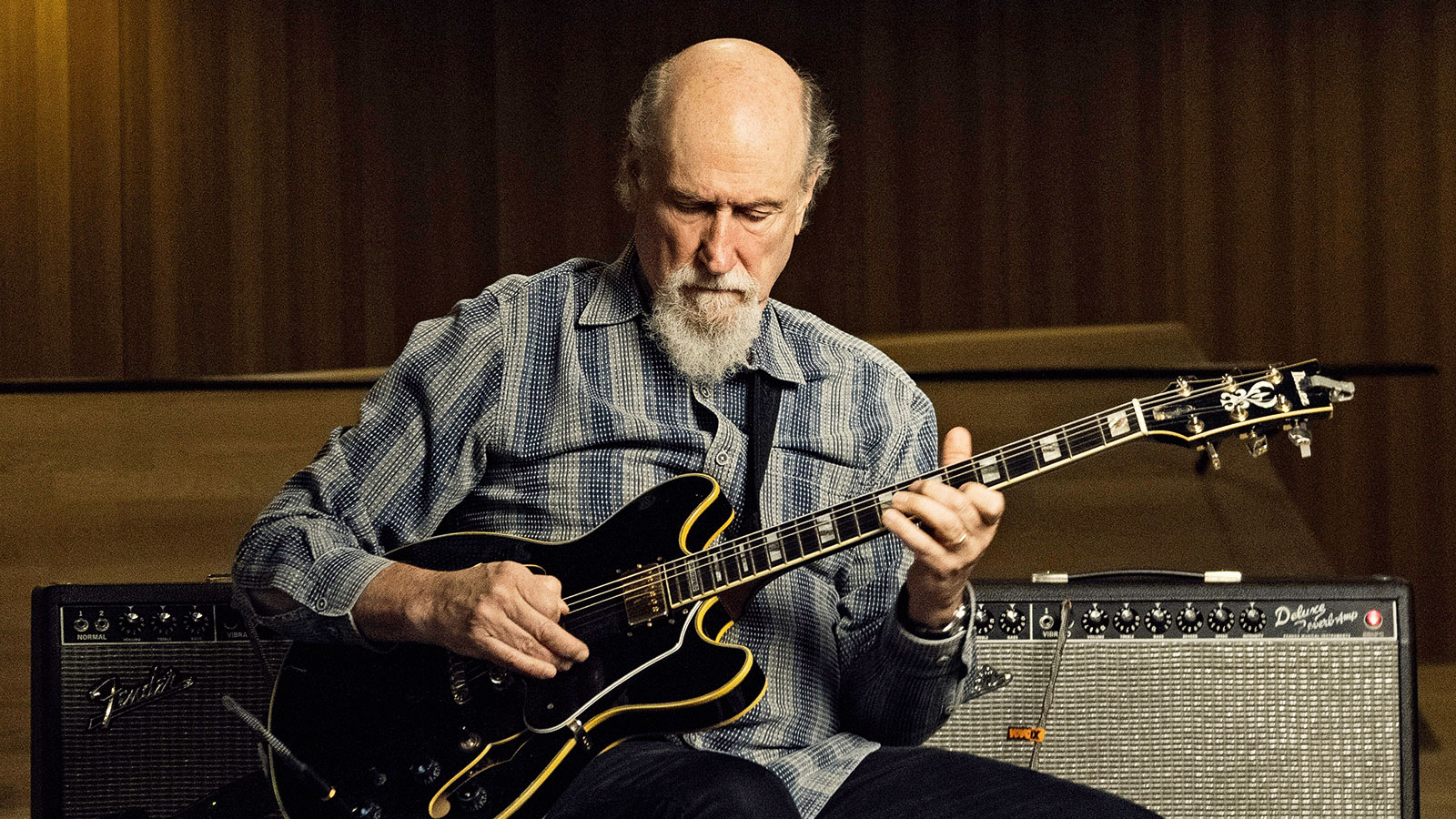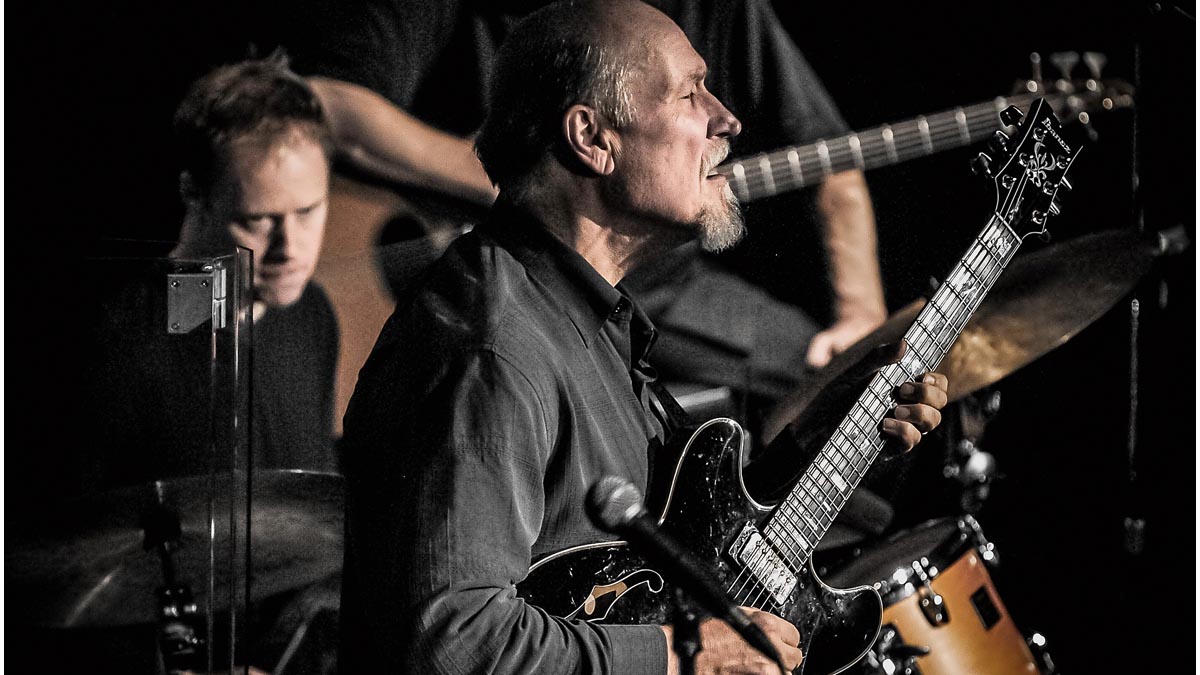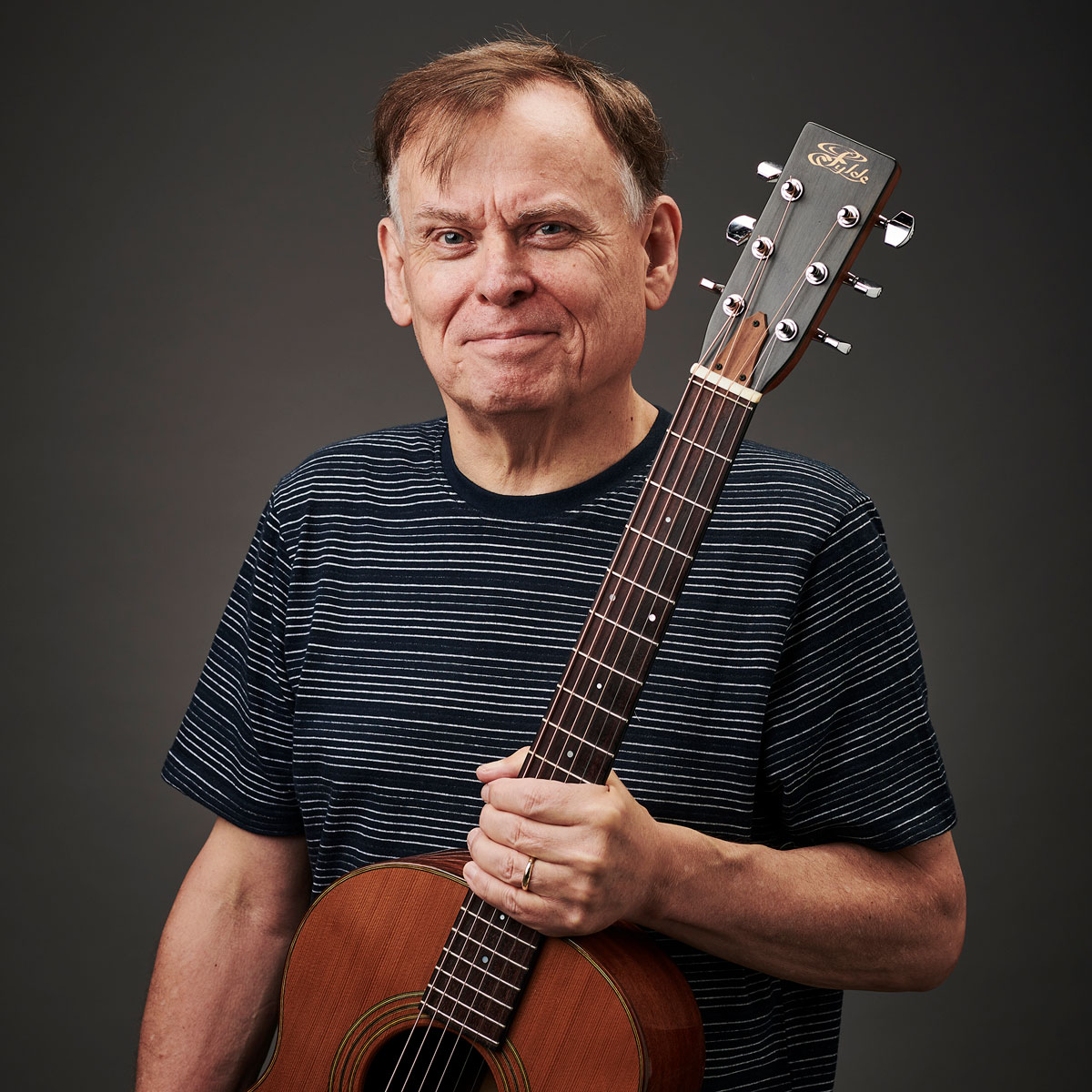John Scofield: “When you’re playing without a band, all kinds of subtleties in your playing come out, maybe good and bad… You really hear what you’re doing”
On his latest album, Solo, the jazz guitar luminary plays alone with just a looper for company, and it turned out to be a learning experience that was a lot of fun too

Another product of the enforced time off the road that the recent pandemic brought with it, John Scofield’s latest album, Solo, was pretty much a happy accident. Whereas we might be more accustomed to hearing Sco in full-on fusion mode, ripping it up with a band, on Solo we find him in a more introspective mood.
Moving between jazz standards and self-penned tunes, it’s an album of many colours and moods and one that seems to have inspired John to seek out new and entirely different levels of creativity. It’s always a bold and daring move to strip music back to a very basic level in this way...
How did the idea for Solo come about?
“I had played a couple of solo gigs with the looper because solo guitar by itself – I’m not really into that. I like to blow and the looper allowed me to do that. But still, the idea of making a solo record, I didn’t know if I could do that all by myself. And it was sort of intimidating somehow, different from going into the studio with my friends and playing like I’ve done for so many years.
“Then the pandemic happens and I’m home alone with my wife. I’m not technical at all, but when I bought the Universal Audio Ox machine, which allows me to record without a microphone and everything, it allowed me to record my electric guitar easily at home. So I just sat there and did a bunch of tunes thinking, ‘Oh, this is fun.’”
What attracted you to the Ox?
“Originally, I got it because it allows you to play with your amp on the sweet spot but softly at home, so you don’t disturb everybody in the neighbourhood. But then I realized that recording potential and started to mess around with it. I thought, ‘Wow, maybe I could really have some performances here that would be worth doing for an album.’
Get The Pick Newsletter
All the latest guitar news, interviews, lessons, reviews, deals and more, direct to your inbox!
“I sat around for a week messing around with it and then realized that I had 100 hours of solo guitar. It was, like, too much. I couldn’t even listen to it. So I waited a month without recording anything and then went back and picked the songs for the album.”
How did you choose the material to play on the album?
“Well, it’s just songs that I pretty much already knew, felt really comfortable with and that I enjoyed playing. I always think in terms of a programme, like different grooves for different tunes, different feelings. I have to really like the song and it also has to work out on the guitar.
“There’s a lot of music that I like that I don’t think I play particularly well, but these are either songs that I had written a while back or that I could play on the guitar. And they sounded right to me. I didn’t want to do a bunch of medium-tempo jazz standards.”

Did playing solo with a looper bring out different, more interesting aspects of your own playing style?
“I think when you’re playing without a band, all kinds of subtleties in your playing come out, maybe good and bad. The difference is that you really hear what you’re doing.
“You don’t have the inspiration of other people, but you get inspiration from your little loop along there with you. Yeah, it’s funny, you just want to get it happening and then you can feel like, ‘Okay, you’re cooking’ or you’re not. And it’s the same as when you’re playing with human beings.”
Some melodies, they come from pre-history and they’re just with us, it’s part of the human experience
What are your tips for anybody who is interested in making recordings with solo guitar?
“Just do it. Learn enough about music so that you know enough about [chord] voicings, so you can have nice-sounding voice leading. You study music, it’s a finite thing, this wonderful study of harmony. It’s just great to know your stuff. So that’s what I suggest people do.
“I haven’t done this for years, but I used to write out little chord melody things to see how the voicings were and see where I was missing stuff because of the limitations of the guitar compared with a keyboard. Sometimes you don’t need as dense a harmony. You don’t have to do block chords every phrase. So learn the songs: really learn the songs.”
Which guitar are you playing on the album?
“That was my Ibanez AS200. I have this Gibson ES-330, an older one, that may be on the album, I’m not even sure; I can’t tell. Most of the tracks were definitely the Ibanez, maybe all of them. I don’t know because I didn’t write down what was on what. But that’s the guitar that I play a lot, it’s an Ibanez from 1986, and I put Voodoo pickups on it.”
The Gibson 330 is a very underrated guitar.
“Yeah, it’s cool, it’s got those P-90 pickups and it’s very similar to a 335 but a more hollowbody sound. It’s different, and I like mine a lot. It’s a little bit harder to play somehow, for me, just a little bit. So I end up playing the Ibanez more, but the 330 has got a beautiful sound.”
You play an arrangement of Danny Boy on the album and you mention in the sleeve notes that it may be everybody’s favourite tune. It’s strange the way that some melodies don’t ever age – it doesn’t matter what kind of reading you make of them.
“Yeah, what is it with that? If we knew what it was, we’d all be writing Danny Boy. I think of it in this completely mythological way, songs like that. The bluegrass Appalachian music that came from the moors in Scotland, which came from the Vikings that invaded the UK, which came from I don’t know where.
“Those melodies, they come from pre-history and they’re just with us, it’s part of the human experience. And I don’t know, it all rings a bell with us somehow.”
Are you going to take this album on tour?
“My tours through the summer are with my band, but I’ll be playing some solo gigs next year. I’ll keep doing it. I hope I get to come and play solo, maybe in London or wherever they’ll have me. I look forward to that.”
- Solo is out now via ECM Records.
With over 30 years’ experience writing for guitar magazines, including at one time occupying the role of editor for Guitarist and Guitar Techniques, David is also the best-selling author of a number of guitar books for Sanctuary Publishing, Music Sales, Mel Bay and Hal Leonard. As a player he has performed with blues sax legend Dick Heckstall-Smith, played rock ’n’ roll in Marty Wilde’s band, duetted with Martin Taylor and taken part in charity gigs backing Gary Moore, Bernie Marsden and Robbie McIntosh, among others. An avid composer of acoustic guitar instrumentals, he has released two acclaimed albums, Nocturnal and Arboretum.
“I didn’t think anybody would believe I got it from George Harrison. I figured they’d call me a liar”: Vintage guitar guru Norman Harris names the 5 most memorable guitars that have come through Norman's Rare Guitars
“What blew me away was that everyone wanted the curly maple top. People were calling, saying, ‘I’ve got to have the bird inlays’”: Paul Reed Smith on raising the Standard 24, finally cracking the noise-free guitar and why John Sykes is a tone hero






![[from left] George Harrison with his Gretsch Country Gentleman, Norman Harris of Norman's Rare Guitars holds a gold-top Les Paul, John Fogerty with his legendary 1969 Rickenbacker](https://cdn.mos.cms.futurecdn.net/TuH3nuhn9etqjdn5sy4ntW.jpg)



